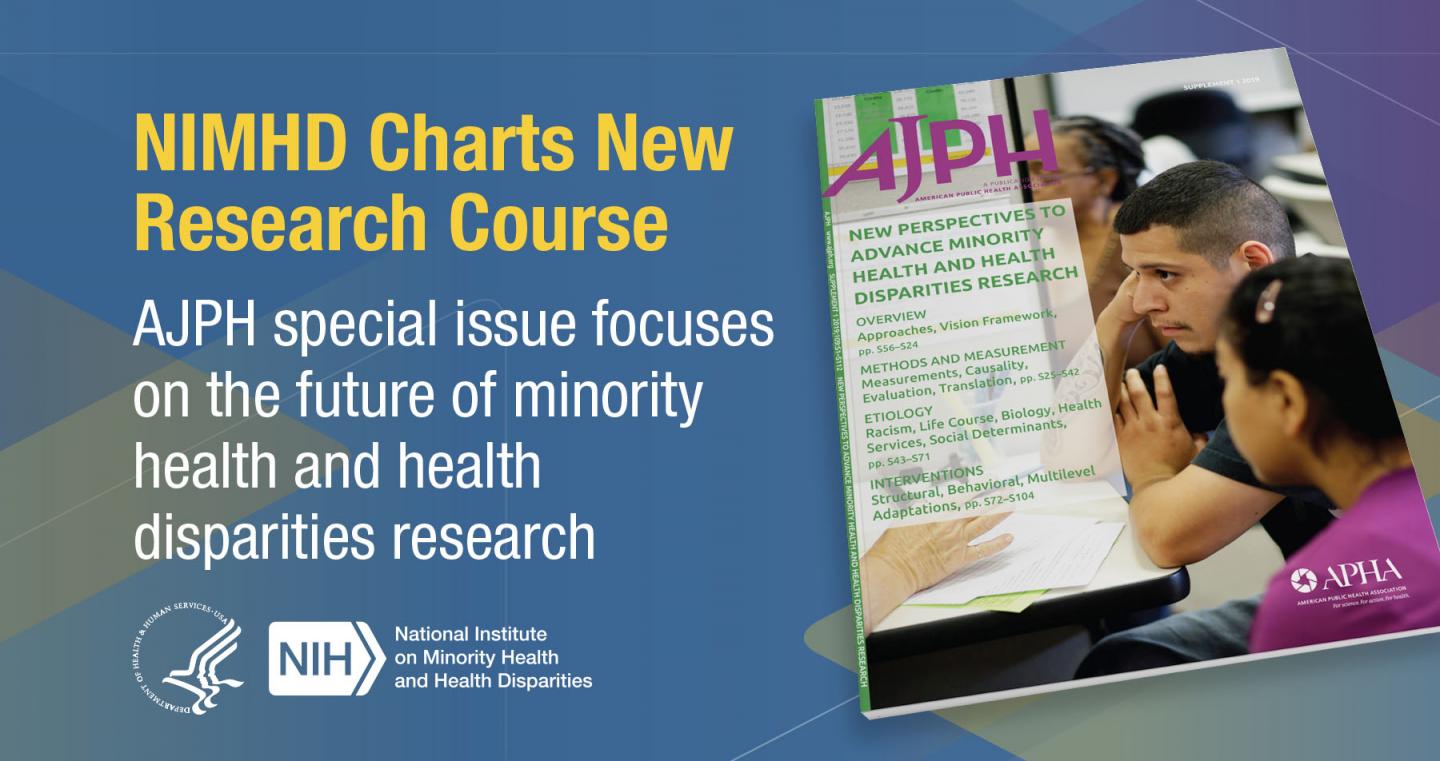
Credit: NIMHD
Health disparities have persisted, despite extensive research and a decades-long mandate to eliminate them. Thus, the National Institute on Minority Health and Health Disparities (NIMHD) led a National Institutes of Health-wide, two-year science visioning process to chart a new research course to improve minority health and reduce health disparities. The American Journal of Public Health (AJPH) special issue, New Perspectives to Advance Minority Health and Health Disparities Research, is the culmination of this process with input from experts to help NIH determine the science needed to address health disparities. Thirty specific research strategies were identified across the three pillars that guided the science visioning: methods and measurement, etiology, and interventions.
Within the issue are analytic essays and editorials which cover harmonizing health disparities measurement, leveraging the data-rich world, addressing social determinants of health; designing structural, behavioral, and multilevel interventions; and building an evidence base to adapt interventions for health disparities populations. Other covered topics include methodologies to understand causes, the importance of a life course perspective, and key biological mechanisms that link social exposures to chronic diseases. This special issue is introduced by NIMHD Director Eliseo J. Pérez-Stable, M.D, and NIH Director Francis S. Collins, M.D., Ph.D., in an Editor’s Choice editorial.
The science visioning is a transdisciplinary effort that bridged scientific disciplines to develop a coordinated research vision to improve health and reduce disease in populations that experience health disparities, e.g., racial and ethnic minorities, socioeconomically disadvantaged populations, underserved rural populations, and sexual and gender minorities. NIH endorses the new research course described in these articles and will use the strategies developed to guide the implementation of the NIH Strategic Plan on Minority Health and Health Disparities in the next five years. The science that will come from advancing these strategies will help enable NIMHD’s vision–an America in which all populations will have an equal opportunity to live long, healthy, and productive lives.
###
Eliseo J. Pérez-Stable, M.D., NIMHD Director is available for interviews.
NIMHD is one of NIH’s 27 Institutes and Centers. It leads scientific research to improve minority health and eliminate health disparities by conducting and supporting research; planning, reviewing, coordinating, and evaluating all minority health and health disparities research at NIH; promoting and supporting the training of a diverse research workforce; translating and disseminating research information; and fostering collaborations and partnerships. For more information about NIMHD, visit https:/
About the National Institutes of Health (NIH): NIH, the nation’s medical research agency, includes 27 Institutes and Centers and is a component of the U.S. Department of Health and Human Services. NIH is the primary federal agency conducting and supporting basic, clinical, and translational medical research, and is investigating the causes, treatments, and cures for both common and rare diseases. For more information about NIH and its programs, visit http://www.
NIH…Turning Discovery Into Health®
Media Contact
Rebecca Newton
[email protected]
301-402-1366
Original Source
https:/
Related Journal Article
http://dx.




